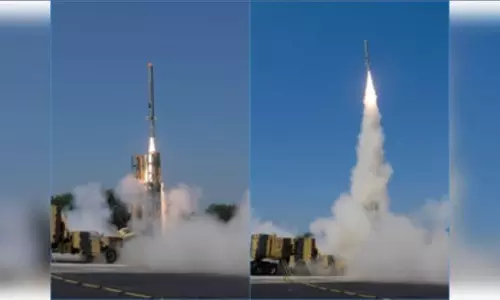
Blood and water cannot flow together: PM after Indus review meeting
text_fieldsNew Delhi: India on Monday looked set at firming up its tough stance against Pakistan on the issue of terror, with Prime Minister Narendra Modi stating that "Blood and water cannot flow together", at a meeting to review the Indus Waters Treaty with the neighbour.
Modi is reported to have said this at a meeting he chaired in the morning with National Security Advisor Ajit Doval, Foreign Secretary S. Jaishankar, and other senior officials, informed sources said.
The Prime Minister's statement comes two days after he said at a public meeting in Kozhikode in Kerala that the country will not forget the sacrifices of the 18 soldiers killed in the September 18 terror attack in Uri, Jammu and Kashmir. India has said the four militants were from Pakistan, a claim Islamabad has denied.
At the meeting, it was also decided that an inter-ministerial commission would be set up to go into various provisions of the bilateral treaty that was signed in Karachi on September 19,1960, out of Pakistan's apprehension that since the source of rivers of the Indus basin are in India, it could potentially create drought and famine in Pakistan during times of war.
The meeting also decided to look at the full utilisation of the waters of the Indus, Chenab and Jhelum, the three western rivers of the Indus water system that flow through Jammu and Kashmir, and is mostly utilised by Pakistan.
Around 95 percent of the waters of the three eastern rivers of Sutlej, Beas and Ravi is being utilised by India.
Relations between India and Pakistan have nosedived over Islamabad raking up the Kashmir issue at international fora and for its open backing of the current unrest in the valley that has seen 90 people killed in clashes with security forces since July 9. Islamabad's support for Hizbul Mujahedin commander Burhan Wani, over whose killing Pakistan observed a 'black day', has added to souring of relations.

















